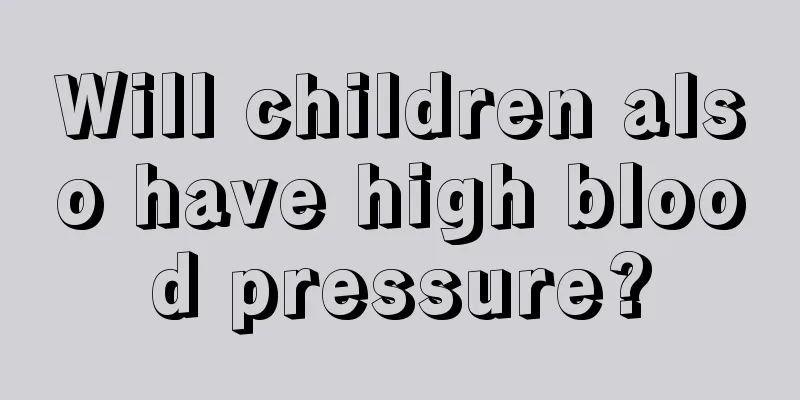What are the symptoms of calcium deficiency in children?

|
The human body contains more than 60 elements, including 11 essential quantitative elements and more than ten trace elements. The lack of any one of these elements will have an impact on the body and may even cause disease. The human body generally absorbs the various necessary elements through food. If you know which element the body lacks, you can just eat food that contains slightly more of that element.
1. Calcium deficiency symptoms 1. Restless, often crying for unknown reasons, having trouble falling asleep, and easily waking up even after falling asleep; 2. Sweating a lot, even if the weather is not very hot, it is easy to sweat; 3. Occipital hair loss circle, hair loss often occurs on the back of the head; 4. Teething occurs later than children of the same age; 5. Delayed closure of fontanelle and muscle weakness; 6. The child has a dull look, few expressions, and his movements and language lag behind those of children of the same stage;7. The forehead is high and protruding, forming a square head. Or there are often beaded ribs, where the cartilage of each rib is connected like beads, which often compresses the lungs, making the baby's ventilation difficult and prone to tracheitis and pneumonia; 8. Anorexia and partial eclipse are also related to calcium deficiency. Insufficient calcium intake in the human body can easily lead to loss of appetite, low intelligence, and decreased immune function. 9. Eczema is also related to calcium deficiency, which is common on the top of the head, face, and behind the ears, accompanied by crying and restlessness, and sweating behind the pillow and back; 10. Severe calcium deficiency may even cause pigeon chest, hunchback, bow legs, etc., which requires special attention. If any of the conditions listed in the symptom table occur, you should pay attention, as your baby may be calcium deficient. Next, it is best to go to the hospital for testing and let the doctor give the most authoritative judgment based on the baby's physical condition.If the baby is mildly calcium deficient, calcium can be supplemented through dietary supplements or appropriate amounts of vitamin D, plus more sun exposure and exercise. If the calcium deficiency is more serious, the baby needs to be supplemented with calcium using medication according to the doctor's instructions. Do not supplement calcium for your baby casually. Excessive calcium intake may cause many serious consequences such as anorexia, constipation, and blood calcium. A small number of children who have long-term and severe excessive calcium supplementation may suffer from "grimace syndrome": a big mouth, a protruding upper lip, a flat nose bridge, nostrils facing the sky, eyes far apart, and a weird expression. These children often also suffer from diseases such as emaciation, mental retardation, and heart murmurs. The above is a summary of the symptoms of calcium deficiency in babies. Pay special attention, especially when they are 2 years old. Babies at this age are most likely to suffer from calcium deficiency. Shouldn’t you go to the best hospital to consult a doctor on how to deal with it and supplement calcium properly? |
<<: What are the symptoms of infantile epilepsy?
>>: What are the symptoms of shock
Recommend
Symptoms of hip dysplasia in children
It is said that parents' love is the most com...
Newborn baby's throat is always hoarse
Newborns are very important to their parents, and...
What department should I go to if my child drools?
Children are important family members in every fa...
What causes abdominal pain and vomiting in children?
Children themselves have lower physical resistanc...
What to do if your child keeps drooling
If a child drools occasionally, it is not a serio...
The treatment of sinusitis in children is like this
Sinusitis in children has a great impact on their...
How to check Helicobacter pylori in children
Nowadays, many children are infected with Helicob...
Is meningitis serious in babies?
The baby has meningitis and the parents are very ...
How to distinguish influenza from the common cold in children
Cold is a common disease in our daily life. No ma...
Cultivation of children's behavioral habits
We all know that early childhood is the initial s...
Symptoms of social impairment in babies
While children are growing physically, parents sh...
What to do if a child has a cold or virus rash
Children's physical development is relatively...
Why does my baby sleep during the day and cry at night?
Since today's mothers are relatively young an...
At what age is surgery suitable for hydrocele
Hydrocele is a disease that many children will ha...
What should I do if my child has a sore throat and fever?
Children will have various minor illnesses when t...









